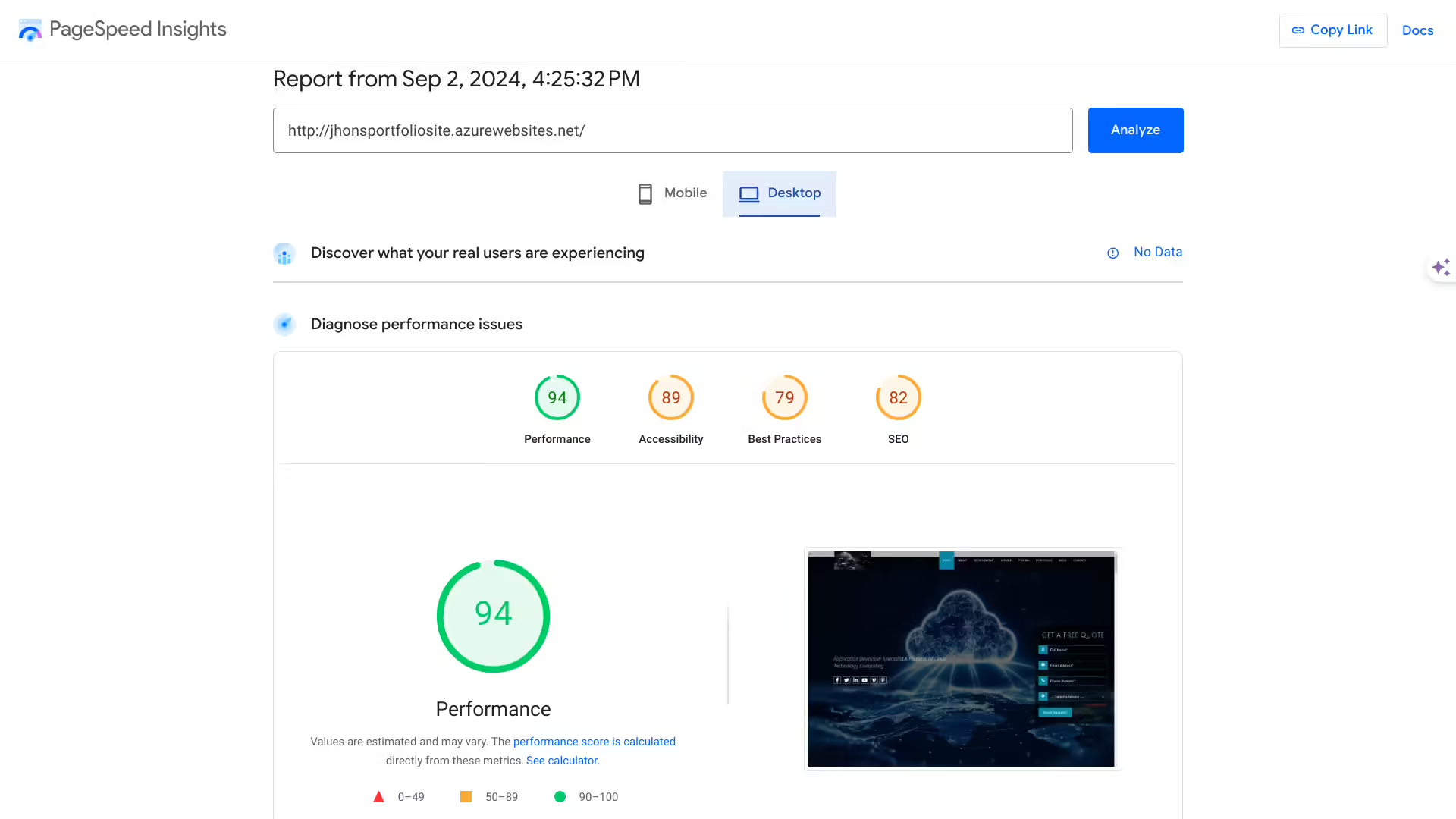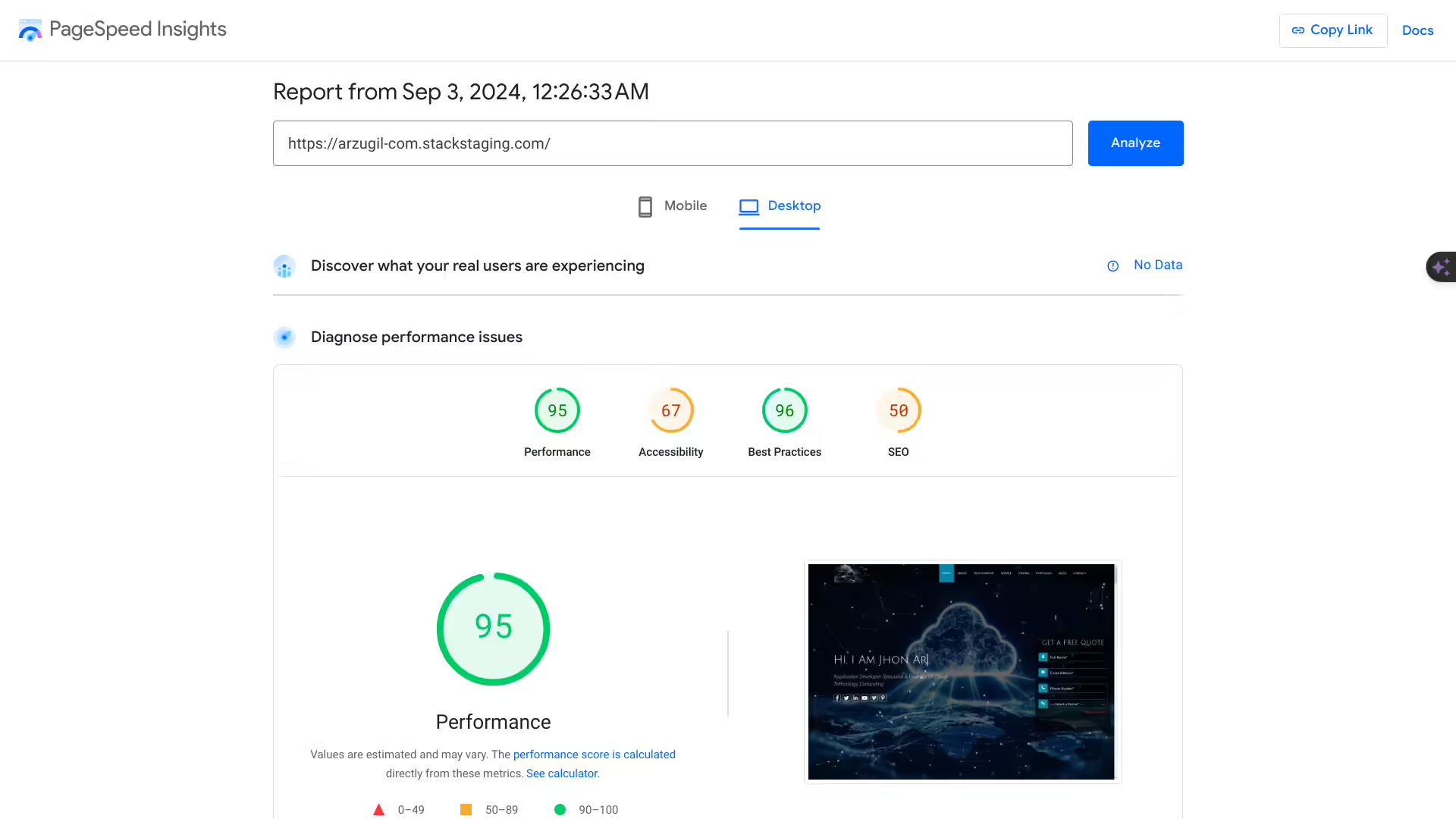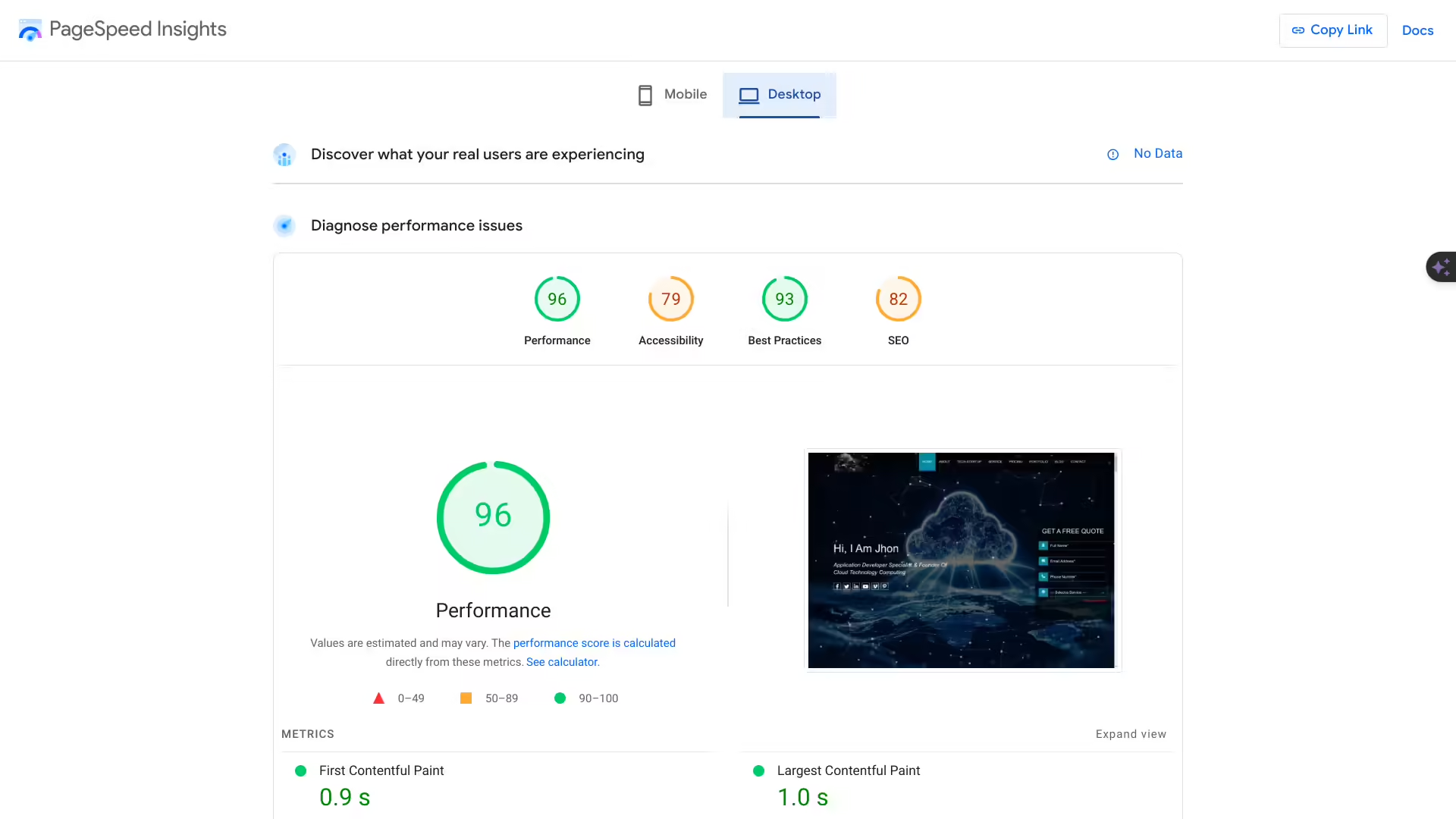
Cloud Technology Computing Corporation conducted a comprehensive evaluation to determine the most suitable hosting environment for their web applications. The study focused on comparing the performance, reliability, scalability, and cost-effectiveness of cloud hosting solutions, specifically AWS and Azure, against their existing dedicated hosting providers, Hostinger and Eco Web Hosting. The goal was to identify the best platform to support their operations before making a full transition to cloud hosting.Azure Hosting (Desktop): Azure provides high performance and global reach with its extensive network of data centers. The Desktop Hosting solution offers powerful virtual machines with configurable RAM, CPU, and storage. It is ideal for businesses requiring heavy compute resources, high availability, and advanced networking features. Cloud-Based: Azure utilizes cloud-based infrastructure, which allows better scalability and performance compared to shared or dedicated hosting. Auto-Scaling: Automatically adjusts resources based on demand, offering seamless performance during traffic spikes. Hostinger: Shared Hosting: Hostinger is known for offering affordable shared hosting solutions, which are suitable for small to medium websites but can experience slower performance under high traffic due to shared server resources. Cloud Hosting: Hostinger’s cloud hosting offers better performance compared to shared hosting, as it uses isolated resources, though it still cannot match the scalability of Azure. Global CDN: Offers Cloudflare CDN integration, improving site loading times by caching content globally. Eco Web Hosting: Environmentally Friendly Hosting: Offers shared hosting services that emphasize eco-friendliness by using renewable energy. While it focuses on green technology, it still provides decent performance. Shared Servers: Performance is similar to other shared hosting providers, but you might encounter resource limitations during high-traffic periods. Green Hosting: While environmentally conscious, the performance is more in line with other shared hosting providers, which may lag behind cloud-based solutions like Azure. 2. Scalability Azure Hosting (Desktop):
The evaluation focused on key performance indicators, including load times, server response times, and scalability under traffic surges, across AWS, Azure, Hostinger, and Eco Web Hosting.
Findings Load Times: AWS: Demonstrated significant improvements in load times due to their globally distributed data centers, reducing latency. Azure: Showed similar performance to AWS, with slight differences depending on regional data centers. Hostinger: While stable, load times were longer compared to both cloud environments, especially during peak traffic periods.High Scalability: Azure can scale horizontally or vertically, offering virtual machine configurations ranging from low-power VMs to high-performance setups for enterprise use. Dynamic Resource Allocation: Azure allows real-time adjustment of computing resources based on usage, making it highly suitable for businesses with fluctuating traffic.
Hostinger: Limited Scalability in Shared Plans: Shared hosting plans do not allow much scalability. However, with cloud hosting, Hostinger offers some level of scalability, though not as extensive as Azure. Upgrading to Cloud Hosting: Hostinger provides an option to upgrade from shared to cloud hosting, which offers isolated resources and better performance. Eco Web Hosting: Limited Scalability: Like Hostinger, Eco Web Hosting offers shared hosting, which has more limited scalability options. It’s suitable for small websites but not for heavy, resource-intensive applications. No Cloud Hosting Option: Lacks the scalability features of cloud providers like Azure. 3. Pricing Azure Hosting (Desktop):


AWS and Azure: Both platforms offered superior scalability, handling traffic surges without any performance degradation. Autoscaling features in AWS and Azure allowed for automatic resource adjustment.
Hostinger: Scalability was more challenging, requiring manual server adjustments and often leading to temporary slowdowns during high traffic periods.
AWS: Demonstrated significant improvements in load times, benefiting from globally distributed data centers, which reduced latency and provided faster access to content.
Azure: Showed similar performance to AWS, with slight differences based on the proximity of regional data centers. Performance was consistently high, though marginally variable depending on the region.
Dedicated hosting like Hostinger provided stable load times, but they were generally longer compared to the cloud environments, particularly during peak traffic periods, where latency became more noticeable.

Objective: Understand the problem, gather requirements, and analyze potential solutions..

Objective: Build and implement the solution based on the research findings.

Validate that the solution meets the requirements and functions correctly.

Launch the solution to the production environment and ensure it is operational.
The company's mission is to provide cutting-edge technology solutions that help businesses thrive in the digital age. By focusing on innovation, client satisfaction, and technological excellence, Cloud Technology Computing Corporation aims to be a leader in the cloud computing and software development space.
Pay-as-You-Go Model: Azure follows a pay-as-you-go model where you only pay for the resources you use. This is flexible but can become costly for high-traffic or resource-intensive sites. Pricing Tiers: Azure offers multiple pricing tiers based on resource consumption, so it is suitable for enterprises with larger budgets or projects that demand dynamic resource scaling. Hostinger: Affordable Plans: Hostinger is known for its affordability, with shared hosting starting as low as a few dollars per month. Cloud Hosting Plans: Their cloud hosting plans offer better performance at a moderate price, making it a good balance between affordability and resource allocation. Eco Web Hosting: Moderately Priced: Eco Web Hosting offers reasonable pricing, typically between Hostinger and Azure. The focus on green hosting may make it more appealing to eco-conscious consumers. Limited Flexibility: As it primarily offers shared hosting, it may not be as cost-effective for larger websites that need scalability.
Features Azure Hosting (Desktop): Cloud services Integration: Azure offers integration with a wide range of cloud services (Azure SQL, AI services, Kubernetes, etc.), providing flexibility and power for custom solutions. Advanced Networking and Security: Provides advanced firewall, VPN, and security features that are designed for enterprise use. Virtual Machines: Allows businesses to create and manage virtual machines (VMs) for different operating systems, such as Linux or Windows. Hostinger: Easy-to-Use Control Panel: Offers a custom-built hPanel, which is user-friendly and allows easy management of domains, emails, and hosting settings. Domain and SSL Freebies: Hostinger provides free domains and SSL certificates with most plans. CMS-Friendly: Integrates well with WordPress, Joomla, and other CMS platforms. Eco Web Hosting: Green Credentials: One of the key selling points is its commitment to using renewable energy for powering servers. This makes it an attractive option for environmentally-conscious businesses. Basic Shared Hosting Features: Offers features like free domain registration, SSL certificates, and daily backups. However, it lacks more advanced features like cloud integration or enterprise-level security.
Use Case Scenarios Azure Hosting (Desktop): Best For: Enterprises or businesses requiring high compute power, scalability, and global reach with advanced cloud features. It is ideal for hosting applications that need real-time resource allocation or for businesses running cloud-native apps. Hostinger: Best For: Small to medium websites or businesses that need affordable hosting with decent performance. Good for startups, blogs, and small online shops. Eco Web Hosting: Best For: Businesses or individuals looking for eco-friendly hosting solutions. It's a good fit for smaller websites that want to minimize their environmental footprint but don't need enterprise-grade performance or scalability. Conclusion Azure Hosting Desktop is the most powerful and scalable, ideal for resource-intensive applications and enterprises. Hostinger offers a budget-friendly hosting option, suitable for small to medium websites with moderate traffic. Eco Web Hosting is the choice for eco-conscious users but is more limited in scalability and advanced features. Your choice between these options depends on your business needs, budget, and focus on environmental impact versus scalability and performance.

